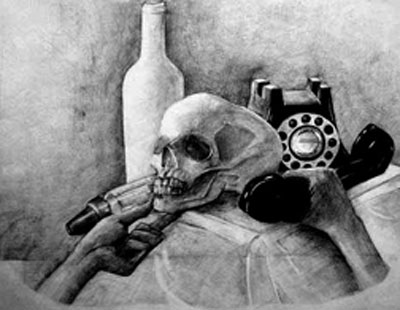All Nonfiction
- Bullying
- Books
- Academic
- Author Interviews
- Celebrity interviews
- College Articles
- College Essays
- Educator of the Year
- Heroes
- Interviews
- Memoir
- Personal Experience
- Sports
- Travel & Culture
All Opinions
- Bullying
- Current Events / Politics
- Discrimination
- Drugs / Alcohol / Smoking
- Entertainment / Celebrities
- Environment
- Love / Relationships
- Movies / Music / TV
- Pop Culture / Trends
- School / College
- Social Issues / Civics
- Spirituality / Religion
- Sports / Hobbies
All Hot Topics
- Bullying
- Community Service
- Environment
- Health
- Letters to the Editor
- Pride & Prejudice
- What Matters
- Back
Summer Guide
- Program Links
- Program Reviews
- Back
College Guide
- College Links
- College Reviews
- College Essays
- College Articles
- Back
Revenge
In Emily Bronte’s novel, Wuthering Heights, I was able to pick up on many of the themes throughout the compelling love story. One theme seemed to stick out to me the most, revenge. Revenge is not seen in many love stories, which makes it interesting to me, but what makes it even more interesting is that the vengeance the protagonist posses leads to his downfall. Emily Bronte showed that revenge only leads to self-harm and internal damage through Heathcliff.
Heathcliff’s never seems to find any amount of peace throughout his plotted revenge. Bronte informs the reader of this lesson early on in the novel stating, “It expressed plainer than words could do, the in tensest anguish at having made himself the instrument of thwarting his own revenge” (Bronte 77). His failure of vengeance is clearly evident through his plan to revenge Catherine, he does so by marrying Isabella. Hoping that she notices him with another woman and becomes jealous, he risks hurting not only himself, but Isabella who is ignorant when it comes to men. He also does so to revenge Edgar Linton, who is married to Catherine, Heathcliff himself even admits he marries Isabella just to anger both Catherine and Edgar. Through the turmoil of Catherine and Heathcliff’s shattered love story the two meet together before death. After giving up his plans for revenge, “It is a poor conclusion, is it not . . . An absurd termination to my violent exertions?” (Bronte 308), he goes to meet Catherine, where he learns the true outcome of his retribution. A sickly Catherine lays their saying, “You have killed me, and thriven on it, I think” (Bronte 158). Catherine shows him how the stress of their relationship truly took a dramatic toll on her, which proves to Heathcliff that revenge is not the answer to his happiness.
My photograph shows Heathcliff crossing his fingers behind his back; representing the lies and distrust he showed throughout the novel through his relationship with Catherine and Isabella. The teary eyes overlaying the crossed fingers represent the stress the lies and revenge put onto Catherine. I chose a black and white filter to represent the contrast as well as the darkness such an evil act can bring in people’s lives. Emily Bronte shows her audience that revenge only leads to self destruction as well as destruction of others through Heathcliff’s strategies of vengeance.

Similar Articles
JOIN THE DISCUSSION
This article has 0 comments.
